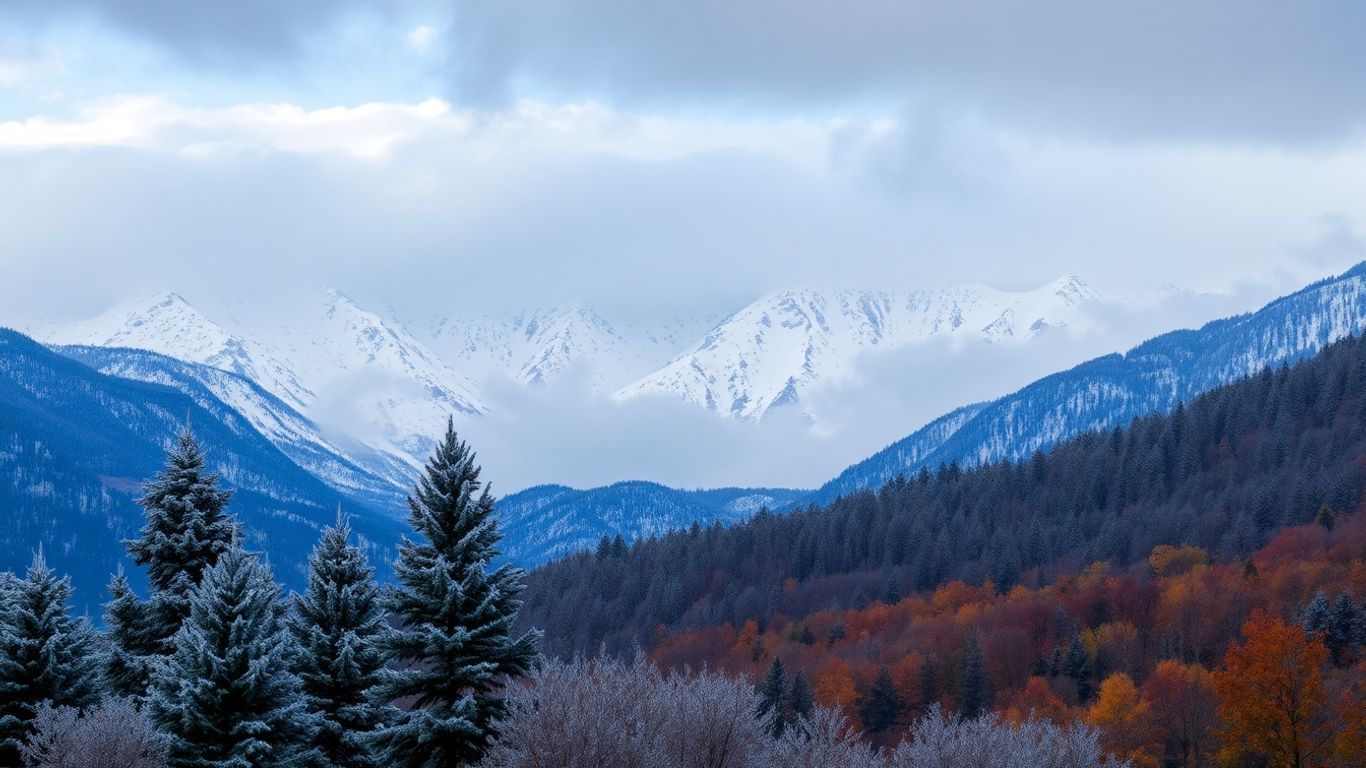Northern Greece’s legendary mountains, including Mount Olympus, woke up to a rare winter scene after an exceptionally early October snowfall covered their summits. Temperatures dipped below freezing as weather centers reported thick snow on ski resorts and high-altitude refuges—an occurrence seldom seen so early in the fall.
Key Takeaways
- Early October snow is highly unusual for Greece, signaling a rare weather event.
- Sub-zero temperatures and visible snow were reported at elevations above 2,500 meters.
- The phenomenon draws attention amidst overall declining trends in Greek snowfall and its impacts on water resources.
Unprecedented Snow Blankets the Mountains
While Greece basks in a Mediterranean climate, its mountainous north can see snow in late autumn or winter. This year, however, the white blanket came weeks earlier than usual. Mount Olympus, Kaimaktsalan, and Falakro ski centers became winter wonderlands almost overnight, with readings of −1°C recorded at high-altitude shelters.
Typically, Greece’s mountain snowfalls begin in late November. According to meteorological records, such early-October snow has only been noted in a few select years over the past decades, making this frost-laden event especially newsworthy for locals and nature lovers alike.
Rare Climate Occurrence or Warning Bell?
Meteorologists remark that while rare October snows do happen periodically, they have become increasingly uncommon. Recent studies from Greece’s National Observatory indicate the average snow cover period has shrunk by about 1.5 days per year between 1991 and 2020. This means northern mountain regions have lost up to 50 days of seasonal snow over thirty years.
The implications extend beyond spectacle. Reduced snowpack shortens the seasonal replenishment of freshwater reserves—critical for agriculture, drinking water, and hydroelectric supply. With autumn snow becoming ever-more fleeting, some experts voice concern about shifting climate patterns and the long-term impact on Greece’s water security.
Travel Advisory and Safety Precautions
This dramatic weather change comes as several European countries—Italy among them—have updated travel advisories due to severe weather events. Travelers to Greece and other Mediterranean destinations are urged to remain alert for disruptions linked to storms or abrupt cold snaps, especially in highland or rural regions.
A few precautions for visitors and locals alike:
- Check weather forecasts frequently if traveling in mountainous areas.
- Take care on slippery or snow-laden roads, especially near ski resorts.
- Follow local advice regarding safe travel routes and emergency procedures.
Looking Ahead: What Does This Mean for Winter?
Local weather enthusiasts have been quick to speculate: does this brisk arrival of winter preview a snowier season ahead? Experts urge caution with such predictions, since broader trends still show a general decline in snow frequency and duration across Greece.
While early snow packs the slopes with excitement and anticipation, it also serves as a dramatic reminder of the fast-changing face of Greece’s climate and the importance of monitoring these events closely.
Sources
- Early Snowfall Dusts Northern Greece’s Peaks, GreekReporter.com.
- Rare early October snow blankets Greece’s mountains, eKathimerini.com.
- [Norway Joins Brazil, Denmark, Greece, France, Costa Rica, And More As Italy Issues New Travel Advisory,
Urging Travelers To Exercise Caution Due To Severe Weather And Safety Risks: Here’s Everything You Need To Know - Travel And Tour World](https://www.travelandtourworld.com/news/article/norway-joins-brazil-denmark-greece-france-costa-rica-and-more-as-italy-issues-new-travel-advisory-urging-travelers-to-exercise-caution-due-to-severe-weather-and-safety-risks-heres-everything/), Travel And Tour World.






